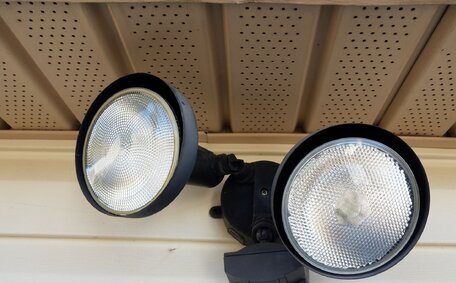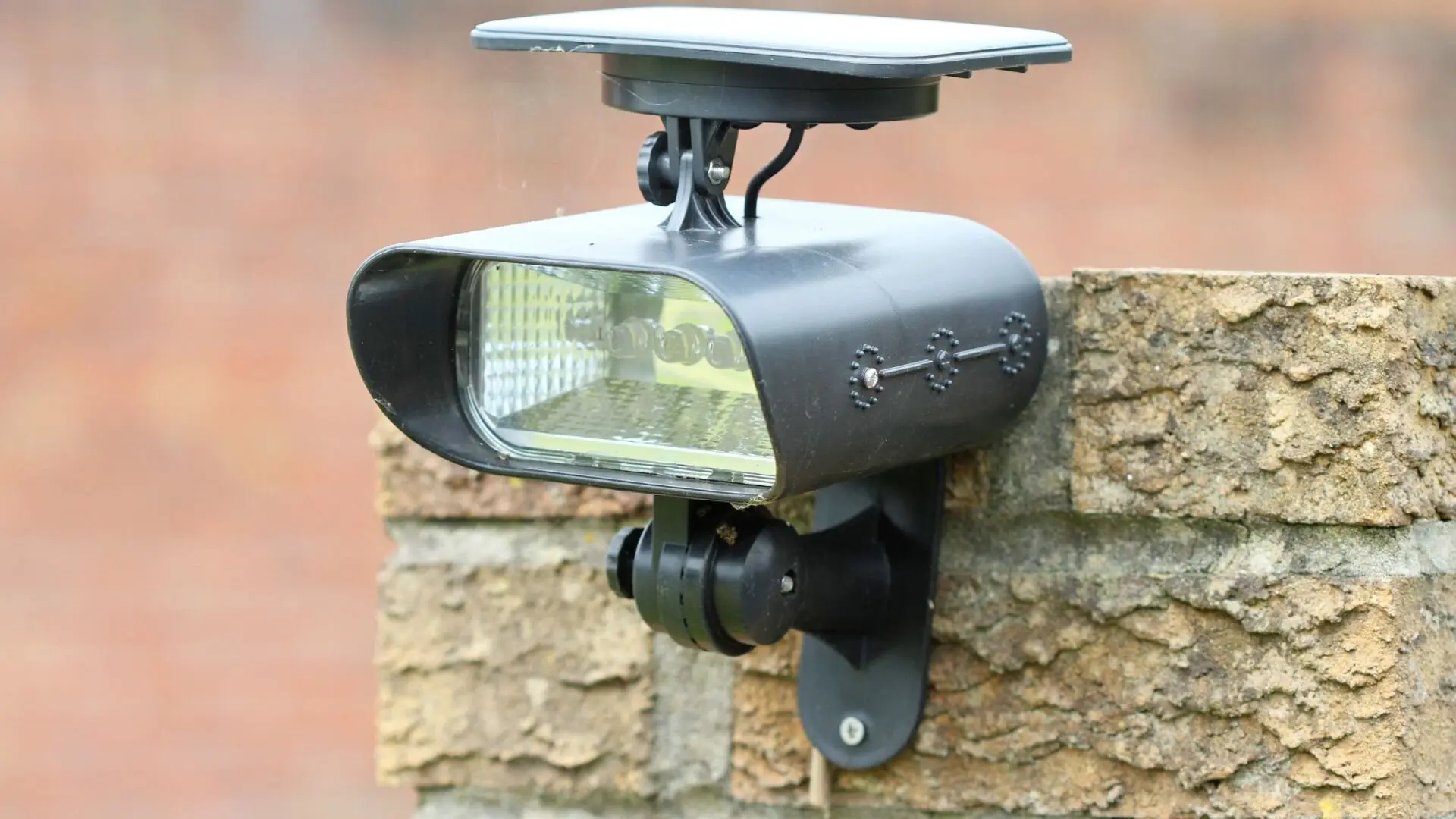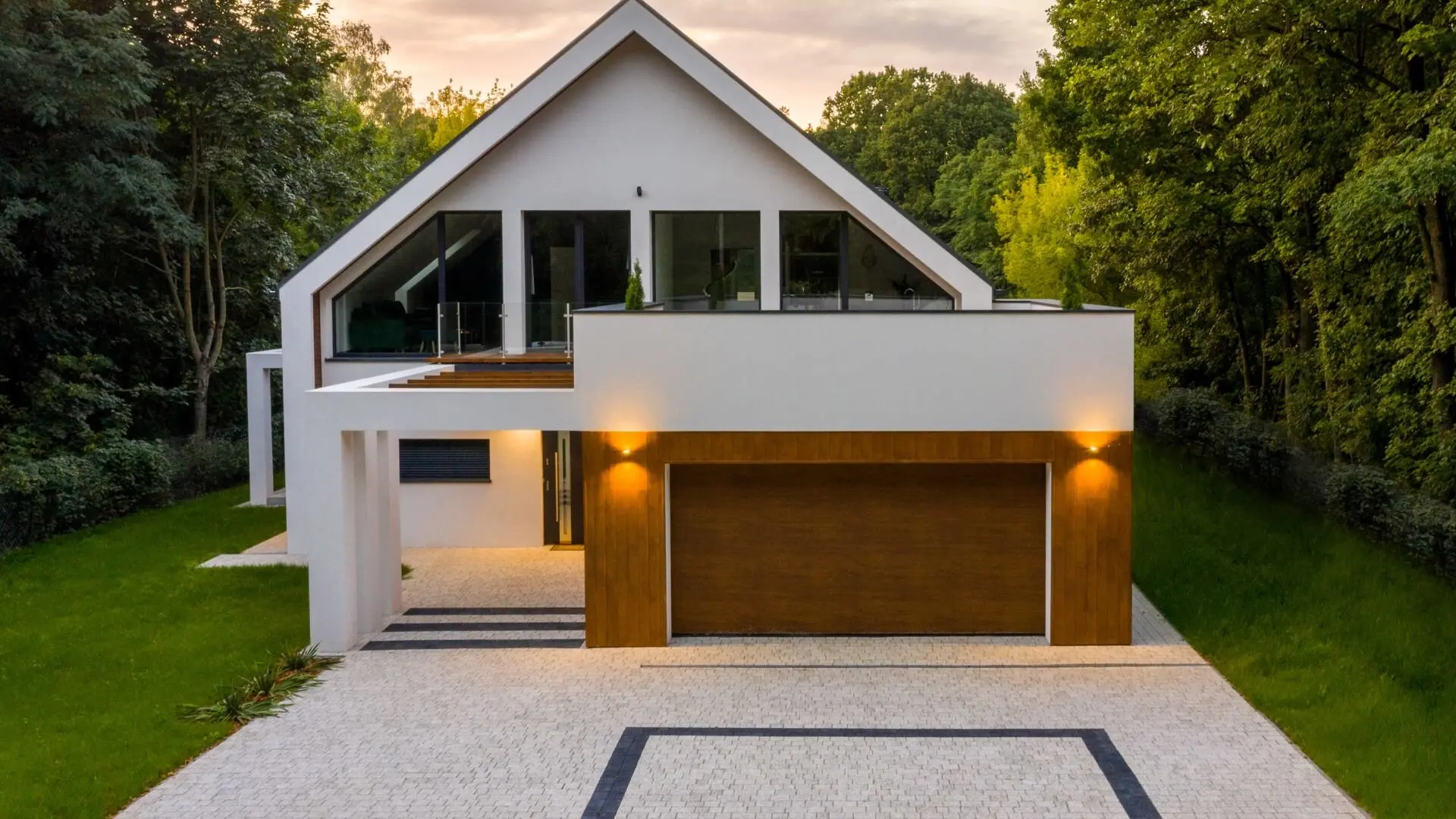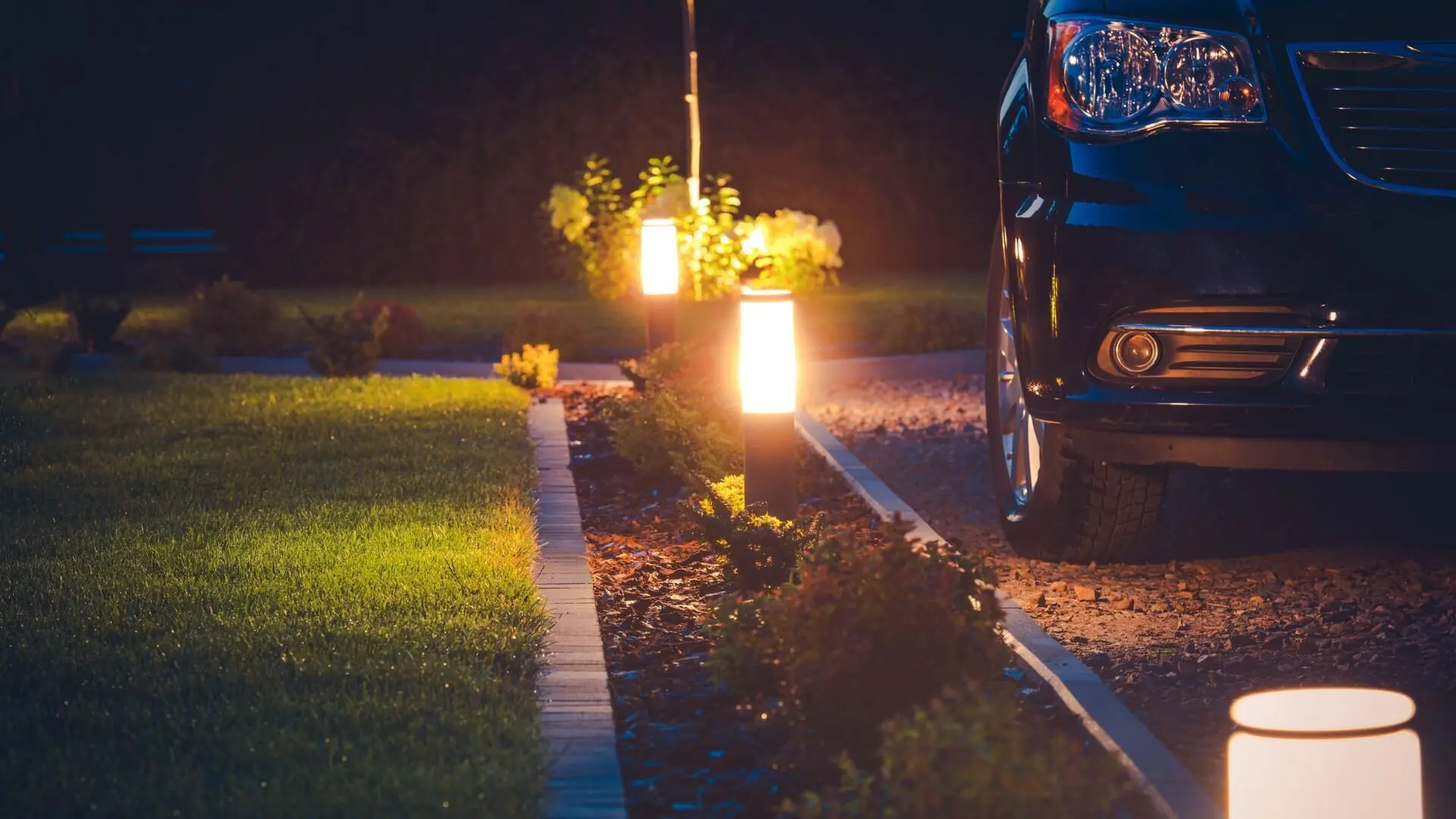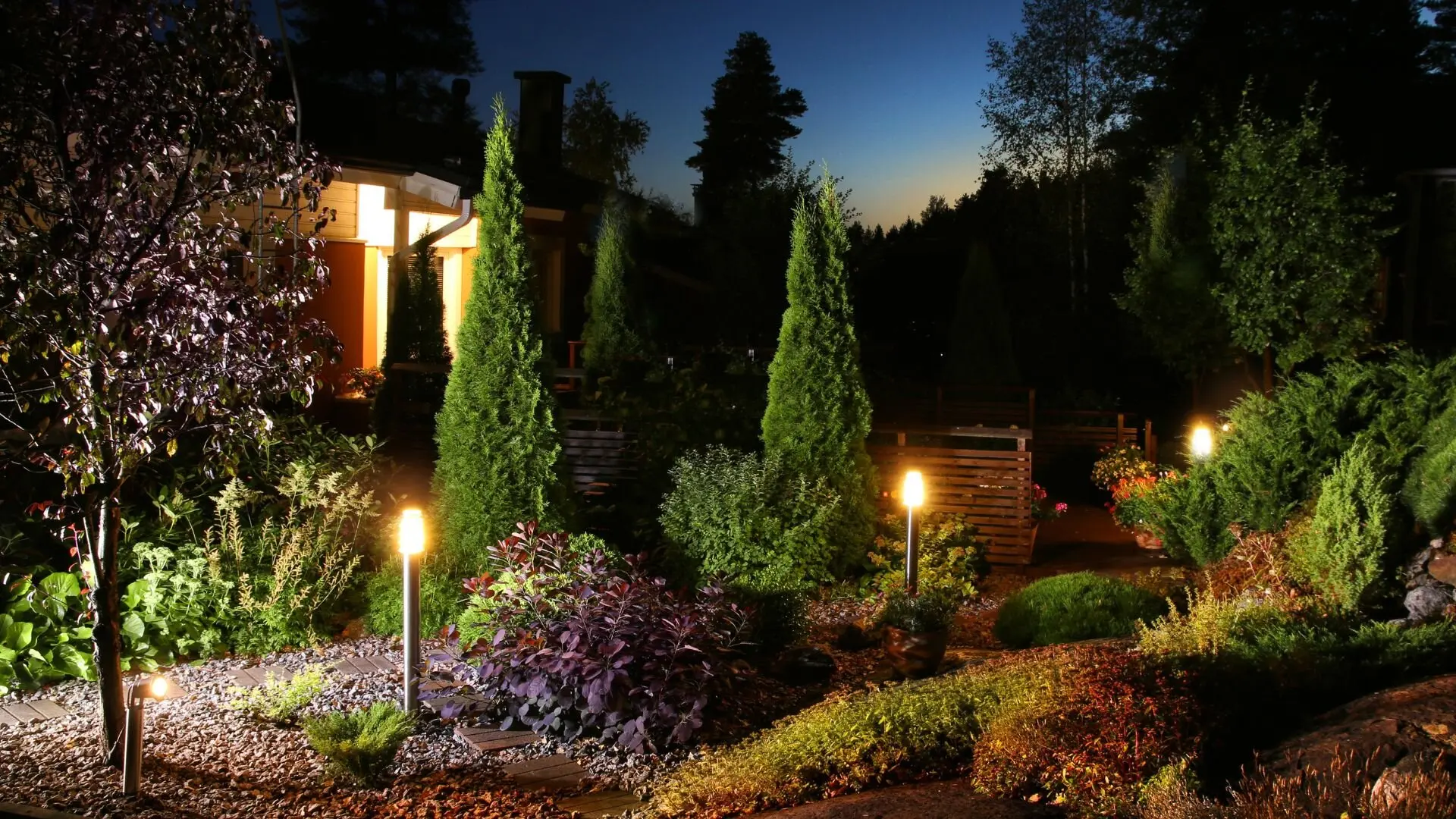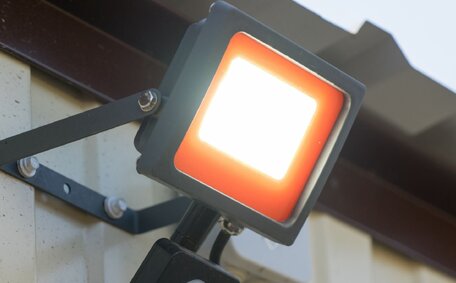Nighttime can make outdoor walkways and driveways treacherous without adequate lighting. Darkness on uneven garden paths or stairs raises the risk of slips and falls. Sure, leaving the lights on all night guarantees some safety, but it’s not the most energy-efficient or sleep-friendly approach.
The ideal solution is strategically installed sensor lighting that automatically illuminates specific areas when needed. Motion-detecting fixtures equipped with energy-efficient LED bulbs transform potentially dangerous areas into well-lit, secure routes at night while conserving energy.
This article explores the key benefits of sensor lights, including convenience, cost savings, and the various motion detection technologies available. It also discusses smart fixture options designed specifically for exterior use and provides expert tips on optimal placement to maximise motion-triggered coverage across paths and driveways while minimising false triggers from other sources. With careful planning, sensor lighting can restore safety and peace of mind when navigating the outdoors after dark.
Benefits of Sensor Lighting
Installing motion-activated sensor lighting along outdoor walkways and driveways provides a wide range of benefits, making it the ideal illumination solution for these spaces.
![2024 03 Sensor Lighting On Path Sensor Lighting Path]()
Convenience
Sensor fixtures are ingeniously designed to light up the moment motion is detected in their zone. This means your guests or family have a well-lit path without the fuss of turning switches on or off each time.
Energy Efficiency
These lights activate only with motion, preventing unnecessary power use when spaces are not in use. By doing so, they help significantly cut down electricity costs, unlike regular timed lighting systems.
Safety & Security
The unexpected brightness from sensor lights can make potential intruders think twice. Plus, this handy illumination lets families safely handle tasks like taking out the trash or walking pets at night.
Flexibility
Modern sensor lights allow adjusting of sensitivity, coverage zones, and activation timers. This customises the lighting for specific security needs and avoids false positive triggers from branches or passing cars.
Cost-Effective
Efficient LED bulbs used in sensor lights have extremely long lifespans of 15,000 to 50,000 hours of use. Combined with low energy consumption, this offers an excellent return on investment over the light’s lifespan.
These practical benefits make motion-sensing fixtures a smart choice over outdated, always-on lighting. When strategically installed, sensor lights save money and energy, while delivering convenience, safety, and flexibility for those after-dark activities.
Sensor Technology Types
Sensor-activated lighting relies on sophisticated detection technologies to accurately trigger illumination when motion is detected while ignoring other ambient factors that could cause false positives. Understanding the strengths and limitations of each approach is key to choosing the optimal fixtures. Common technologies include:
![2024 03 Driveway Sensor Lighting Driveway Sensor Lighting]()
Passive Infrared (PIR)
PIR sensors detect subtle heat signature changes caused by people, vehicles or animals moving through their coverage zones. They filter out gradual ambient temperature shifts and stationary heat sources. PIR is an affordable technology but can fail to detect colder moving objects.
Ultrasonic
These fixtures emit high-frequency sound waves that reflect off nearby objects back to built-in microphones. Changes in the timing of the echo indicate motion. Ultrasonic sensors work in total darkness but are prone to false triggers from air currents, fans, or heavy precipitation.
Microwave
Based on the Doppler effect, microwave motion detectors measure frequency shifts in reflected radio waves when objects move within range. This provides very accurate activation across long distances, though microwave sensors cost more than PIR.
Dual Technology
When PIR and microwave technologies are combined in one fixture, they enable detection of both heat signatures and precise radar reflections, providing reliable results with fewer false alarms.
Photocells
Built-in ambient light sensors detect when light levels drop below an adjustable preset, as at dusk, automatically turning on the light without needing motion.
Other options include IP-networked detectors that integrate with home automation systems, pet-immune models that avoid small animal triggers, and fixtures with app control for easy settings adjustment. Properly installing sensors perpendicular to the area of motion helps optimise detection coverage and prevent unnecessary triggering. Correct placement and selection of the right technologies ensure motion-activated lighting provides optimal automated illumination.
Choosing Fixtures
Selecting the appropriate light fixture styles and positions is crucial for effectively illuminating exterior walkways and driveways using motion-detecting sensor technology. Screw-in sensor bulbs offer a straightforward solution, easily adding automated activation to existing outdoor lights. For powerful, targeted illumination, adjustable floodlights can bathe house exteriors, garage doors, and driveways in light when visitors or homeowners approach the street.
![2024 03 Lights On Path And Driveway Lights Path Driveway]()
Low-voltage path lights on short stakes or unobtrusive mounts subtly accent garden edges and sidewalks, providing gentle directional lighting without glare. Discreetly recessed step lights are ideal for safely illuminating stairs and preventing hazardous missed steps or trips. Wall lanterns with integrated sensors stylishly cast general ambient light near entryways while complementing the home’s architecture and decor.
Compact sensor fixtures, such as post cap lights, can be fitted atop fence posts, bollards, or path route markers, outlining the route with light when needed. All-in-one mailbox and light units provide illumination for retrieving mail or packages after dark.
Properly positioning and angling these various fixtures is essential for achieving optimal coverage across the entire length of exterior walkways and driveways without excessive overlap or gaps. The wide range of sensor light styles available today offers flexibility in balancing aesthetics, functionality, and customised illumination tailored to each home’s unique outdoor lighting needs.
Strategic Placement Tips
Carefully considering sensor light positioning and angles is crucial for maximising motion-triggered illumination coverage across exterior walkways and driveways while avoiding false activations. Prioritising high-priority areas, such as pathway intersections, stair corners, entrances, and exits, is key. Fixtures should be installed away from trees, bushes, or other sources of potential false triggers. Angling lights away from street traffic and adjusting detection range and sensitivity settings also help prevent unnecessary activation.
![2024 03 Garden Sensor Lighting Garden Sensor Lighting]()
For optimal motion sensing across the entire path width, fixtures should be installed parallel to the walkway perimeter, with sensors positioned perpendicular to the direction of movement. Angling the lights slightly downward reduces glare while still fully illuminating the area. Care should be taken to avoid pointing sensor lights directly at neighbouring homes and causing nuisance light pollution. Low-voltage wiring can be buried underground along the edges of the path or driveway for a clean, integrated installation.
Using multiple fixtures with overlapping coverage patterns from two or more strategically placed locations creates reliable sensor-triggered lighting from all directions. It is also advisable to check local regulations governing outdoor lighting installations and light pollution. By following these tips for thoughtful placement and angle adjustments, sensor lights will operate flawlessly for years with minimal wasted illumination.
Light Your Paths with Bright Force
Strategically installed, motion-activated sensor lighting along exterior walkways and driveways enhances convenience, security, and energy efficiency after dark. Bright Force Electrical offers reliable sensor lighting installations and products to illuminate your home’s outdoor paths.
Our fully licensed electricians also provide lighting maintenance, renovations, security systems, and electrical solutions for residential, commercial, and industrial needs. Bright Force has provided five-star service and expertise to customers across Sydney for many years.
Contact our team today to discuss transforming your home’s exterior lighting with automated sensor fixtures tailored to your lifestyle.
